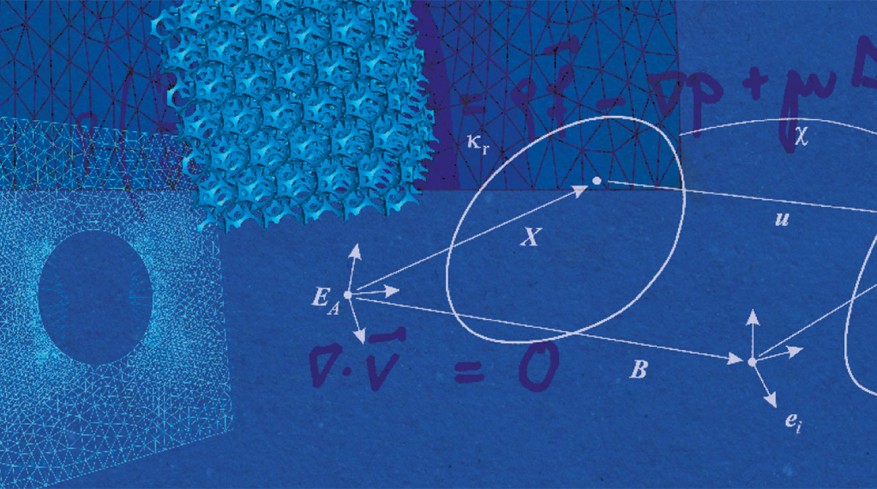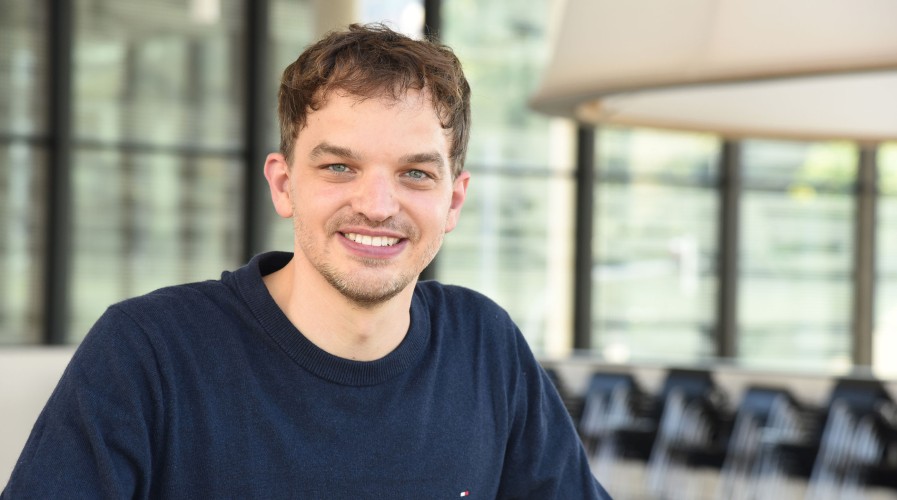New Master's degree programme in Mechanics
Start in winter semester 2023/24 / Online application possible until 31 August
2023/06/13
The new Master's programme in Mechanics is unique in Germany: Graduates are trained in the intersection between mechanical-physical modelling, computer-oriented calculation methods, the corresponding mathematical principles and engineering application fields. This enables a broad interdisciplinary field of activity. Professor Dominik Schillinger from the Department of Civil and Environmental Engineering explains what exactly awaits students and what job opportunities graduates have.

Why an M.Sc. programme in Mechanics? Who is the programme aimed at?
On the one hand, the programme is aimed at graduates of the B.Sc. Engineering and Mechanics at the TU Darmstadt, on whose basic knowledge of higher mechanics and applied mathematics it builds. On the other hand, it is aimed at graduates from the classical engineering sciences, for example with a successfully completed B.Sc. in Mechanical Engineering or B.Sc. in Civil Engineering, who wish to further develop their basic knowledge and methods.
But a lateral entry is also possible for graduates of other basic-oriented Bachelor's degree programmes, for example in physics or mathematics, who want to orientate themselves more towards application-oriented engineering in their Master's degree, but would like to build on the basic and methodological knowledge they acquired in their Bachelor's degree.
What can students expect?
In the first three semesters, students complete a compulsory section consisting of basic modules in numerical mechanics and continuum mechanics as well as a seminar in mechanics, to which students contribute their own scientific presentation. In addition, students choose more advanced modules in continuum mechanics, solid mechanics, fluid mechanics, numerical mechanics and applied mathematics according to their interests and strengths.
Students can then choose two of eight application-oriented specialisation areas, for example, mechanics in aerospace, environmental and biomechanics, mechanics of modern materials or AI and digitalisation in mechanics. The curriculum is rounded off by the Master's thesis in the fourth semester.
Professor Dominik Schillinger
Graduates have excellent prospects on the labour market.

Are there comparable degree programmes in Germany?
The English-language Master's programme in Mechanics is unique in Germany and does not exist in this form at any other German university. With its focus on key topics in mechanics, it trains students for a broad interdisciplinary field of activity after graduation. The English-language degree programme optimally prepares students for an international working environment and provides direct access for international students.
What are the job opportunities for graduates?
Graduates have excellent prospects on the labour market, as they can serve the growing demand in the intersection of abstract mathematical and application-oriented engineering education. The possible fields of activity are, for example, research and development departments with a mechanical-theoretical focus.
Through the study programme oriented towards higher mechanics and mathematics, graduates acquire the ability to work as engineers in responsible positions in the classic fields of mechanical engineering, process engineering and constructive civil engineering, among others, as well as in the fields of materials science, aerospace, environmental technology, energy technology, biomechanics, but also in business and industry, as well as in scientific functions at universities and research institutions.
Master's programme in Mechanics (Language of Instruction: English)
The new Master's degree program in Mechanics is unique in Germany: Graduates are trained in the overlapping field between mechanical-physical modelling, computer-oriented calculation methods, the corresponding mathematical fundamentals and engineering application fields. The Mechanics degree program builds on the fundamentals of higher mechanics and mathematics taught in a Bachelor's degree program. Students can acquire in-depth knowledge in several areas of mechanics, applied mechanics and applied mathematics. The application-oriented specialisations include mechanics in aerospace, environmental and biomechanics, mechanics of modern materials or AI and digitalisation in mechanics.
By focusing on key topics in mechanics, the degree program opens up a broad interdisciplinary field of activity for students after graduation, whereby graduates are excellently prepared for an international working environment through the English-language degree program. Possible jobs range from management positions in development departments in mechanical engineering, process engineering and constructive civil engineering to jobs in research and science. This opens up careers in core areas of industry such as the automotive, aerospace and chemical industries, as well as in public research institutions and universities.












